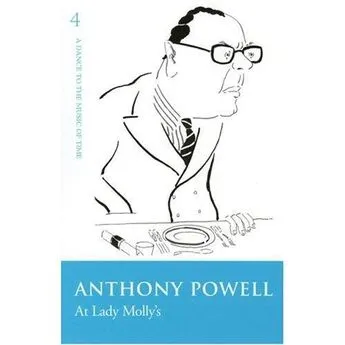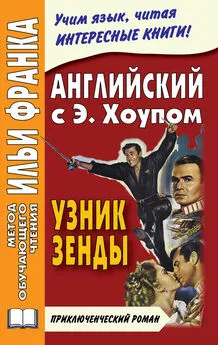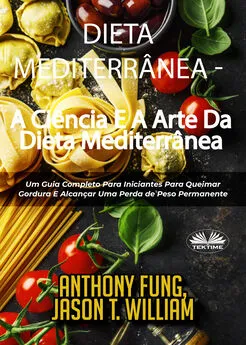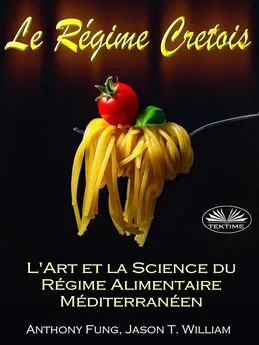Anthony Powell - A Buyers Market
- Название:A Buyers Market
- Автор:
- Жанр:
- Издательство:Arrow
- Год:2005
- ISBN:нет данных
- Рейтинг:
- Избранное:Добавить в избранное
-
Отзывы:
-
Ваша оценка:
Anthony Powell - A Buyers Market краткое содержание
Anthony Powell's universally acclaimed epic A Dance to the Music of Time offers a matchless panorama of twentieth-century London. Now, for the first time in decades, readers in the United States can read the books of Dance as they were originally published-as twelve individual novels-but with a twenty-first-century twist: they're available only as e-books. The second volume, A Buyer's Market (1952), finds young Nick Jenkins struggling to establish himself in London. Amid the fever of the 1920s, he attends formal dinners and wild parties; makes his first tentative forays into the worlds of art, culture, and bohemian life; and suffers his first disappointments in love. Old friends come and go, but the paths they once shared are rapidly diverging: Stringham is settling into a life of debauchery and drink, Templer is plunging into the world of business, and Widmerpool, though still a figure of out-of-place grotesquerie, remains unbowed, confident in his own importance and eventual success. A Buyer's Market is a striking portrait of the pleasures and anxieties of early adulthood, set against a backdrop of London life and culture at one of its most effervescent moments.
A Buyers Market - читать онлайн бесплатно полную версию (весь текст целиком)
Интервал:
Закладка:
This apparent deference to what was necessarily unformed opinion seemed so flattering that I remembered him clearly long after our return to England; and, six or seven years later, when I saw the signature “E. Bosworth Deacon” in the corner of an oil-painting that hung high on the wall of the innermost part of the hall in the Walpole-Wilsons’ house in Eaton Square, the atmosphere of that occasion in the Louvre, the talk about the Conference and St. Sebastian, the feeling of constraint — of embarrassment, almost — the visit, later in the day, to the Walpole-Wilsons themselves, came back all at once very clearly: even the illusion of universal relief that belonged to that historical period: of war being, surprisingly, at an end: of the imminence of “a good time”: of all that odd sense of intellectual emancipation that belonged, or, at least, seemed, perhaps rather spuriously, to belong, to the art of that epoch: its excitement and its melancholy mingling with kaleidoscopic impressions of a first sight of Paris. All these thoughts briefly and speedily suggested themselves, when, taking off my overcoat on my first visit to the house in Eaton Square — after I had come to live in London — I observed Mr. Deacon’s picture. The canvas, comparatively small for a “Deacon,” evidently not much considered by its owners, had been placed beyond the staircase above a Victorian barometer in a polished mahogany case. The subject was in a similar vein to those other scenes lying in the sale-room: the gold tablet at the foot of the frame baldly stating, without mentioning the artist’s name, “ Boyhood of Cyrus ” This was in fact, the first “Deacon” I had ever set eyes upon.
The importance that Boyhood of Cyrus eventually assumed had, however, nothing to do with the painter, or the merits, such as they were, of the picture itself: its significance being attained simply and solely as symbol of the probable physical proximity of Barbara Goring, Lady Walpole-Wilson’s niece. This association of ideas was, indeed, so powerful that even years after I had ceased to be a guest at the Walpole-Wilson table I could not hear the name “Cyrus” mentioned — fortunately, in the circumstances, a fairly rare occurrence in everyday life — without being reminded of the pains of early love; while at the time of which I write almost any oil-painting illustrative of a remotely classical scene (such as one sees occasionally in the windows of dealers round St. James’s normally specialising in genre pictures) would be liable to recall the fact, if by some unlikely chance forgotten, that I had not seen Barbara for a longer or shorter period.
I must have been about twenty-one or twenty-two at the time, and held then many rather wild ideas on the subject of women: conceptions largely the result of having read a good deal without simultaneous opportunity to modify by personal experience the recorded judgment of others upon that matter: estimates often excellent in their conclusions if correctly interpreted, though requiring practical knowledge to be appreciated at their full value.
At school I had known Tom Goring, who had later gone into the Sixtieth, and, although we had never had much to do with each other, I remembered some story of Stringham’s of how both of them had put up money to buy a crib for Horace — or another Latin author whose works they were required to render into English — and of trouble that ensued from the translation supplied having contained passages omitted in the official educational textbook. This fact of her elder brother having been my contemporary — the younger son, David, was still at school — may perhaps have had something to do with finding myself, immediately after our first meeting, on good terms with Barbara; though the matter of getting on well with young men in no circumstances presented serious difficulty to her.
“Do be quick, if you are going to ask me for a dance,” she had said, when her cousin, Eleanor Walpole-Wilson, had first introduced us. “I can’t wait all night while you make up your mind.”
I was, I must admit, enchanted on the spot by this comportment, which I found far from discouraging. On some earlier occasion a dowager had referred to Barbara in toy presence as “that rather noisy little Goring girl,” and the description was a just one. She was small and dark, with hair cut in a square “bob,” which — other girls used to complain — was always hopelessly untidy. Her restlessness was of that deceptive kind that usually indicates a fundamental deficiency, rather than surplus of energy, though I cannot claim, either in principle, or with particular reference to Barbara herself, to have speculated on this diagnosis until many years later. I remember, however, that when we met fortuitously in Hyde Park one Sunday afternoon quite a long time later (as it seemed to me), I still retained some sense of proportion about her, although we had by then seen a good deal of each other. She was walking in the Park that afternoon with Eleanor Walpole-Wilson, fated apparently to be witness of the various stages of our relationship. I had not managed to get away from London that week-end, and to fall in by chance with these two seemed a wonderful piece of luck. That was the last day for many months that I woke up in the morning without immediately thinking of Barbara.
“Oh, what fun to meet like this,” she had said.
I felt immediately a sense of extraordinary exhilaration at this harmless remark. It was June, and there had been rain the day before, so that the grass smelt fresh and luxuriant. The weather, though warm, was not disagreeably hot. The precise location of our meeting was a spot not far from the Achilles statue. We strolled, all three, towards Kensington Gardens. The Row was empty. Sparkles of light radiated this way and that from the clusters of white statuary and nodular gilt pinnacles of the Albert Memorial, towards which we were steadily moving. Eleanor Walpole-Wilson, a square, broad-shouldered girl, rather above the average in height, wore her hair plaited in a bun at the back, which always looked as if it were about to come down at any moment: and did sometimes, in fact, descend piecemeal. She had brought with her Sultan, a labrador, and was trying to train this dog by blasts on a whistle, which she accompanied with harsh, monosyllabic shouting. That enterprise, the training of Sultan, was in keeping with Eleanor’s habit of behaviour, as she was always accustomed to act, in principle, as if London were the country, an exercise of will she rarely relaxed.
We ascended the steps of the Albert Memorial and inspected the figures of the Arts and Sciences loitering in high relief round the central mass of that monument. Eleanor, still blowing her whistle fitfully, made some comment regarding the muscles of the bearded male figure belonging to the group called “Manufactures” which caused Barbara to burst out laughing. This happened on the way down the steps at the south-east corner, approaching the statues symbolising Asia, where, beside the kneeling elephant, the Bedouin for ever rests on his haunches in hopeless contemplation of Kensington Gardens’ trees and thickets, the blackened sockets of his eyes ranging endlessly over the rich foliage of these oases of the mirage.
For some reason Eleanor’s words seemed immensely funny at that moment. Barbara stumbled, and, for a brief second, took my arm. It was then, perhaps, that a force was released, no less powerful for its action proving somewhat delayed; for emotions of that kind are not always immediately grasped. We sat on chairs for a time, and then walked to the north side of the park, in the direction of the Budds’ house in Sussex Square, where the girls were invited to tea. When I said good-bye at the gates I experienced a sense of unaccountable loss, similar in its suddenness to that earlier exhilaration of our meeting. The rest of the day dragged, that feeling of anxiety — which haunts youth so much more than maturity — descending, coupled with almost unbearable nervous fatigue. I dined alone, and retired early to bed.
My parents’ acquaintance — not a very close one — with the Walpole-Wilsons dated from that same period of the Peace Conference during which we had run across Mr. Deacon in the Louvre, a time when Sir Gavin Walpole-Wilson had also been working in Paris. He had by then already left the Diplomatic Service, and was associated with some voluntary organisation — of dubious practical importance, so my father used to hint — devoted to the assistance of certain specialised categories of refugee; for Sir Gavin’s career had been brought to a close soon after receiving his K. C. M. G., as Minister to a South American republic. There had been trouble connected with the dispatch of a telegram; His Majesty’s Government, so it subsequently appeared, having already recognised the Leader of the Opposition as Head of the State in place of the Junta that had enjoyed power for some years previously. It was generally agreed that Sir Gavin, whatever the misdemeanour, had been guilty of nothing worse than a perfectly correct effort to “keep in” with both sides: coupled, possibly, with a certain denseness of comprehension regarding potential fallibility of Foreign Secretaries, and changes recently observable in the political stature of General Gomez; but he had taken the matter to heart, and resigned. Pressure from above may have made this course involuntary, a point upon which opinion varied.
Although not at all inclined to under-estimate the personal part he had played in the Councils of Europe, or, indeed, of the World, Sir Gavin was apt to give the impression that he was always anxious, even in the smallest matters, to justify himself; so that an air of supposing life to have treated him less generously than his talents deserved made him, although a far more forceful personality, sometimes seem to resemble Uncle Giles. He was, for example, also fond of proclaiming that he set little store by rank — rank, at least, when contrasted with ability — a taste which he shared with my uncle. It was possible that in days before his marriage Sir Gavin may have suffered similar financial anxieties, for I believe his own family had been far from rich, with difficulty scraping together the money then required for entering the Diplomatic Service. After retirement — I had, of course, not known him before — he wore his hair rather long, and favoured loose, shaggy suits. A firm belief that things were more likely than not to go wrong was another characteristic of Sir Gavin’s approach to life, induced no doubt by his own regrets. Indeed, he could not be entirely absolved from suspicion of rather enjoying the worst when it happened: at times almost of engineering disaster of a purely social kind.
“For lust of knowing what we should not know,” he was fond of intoning, “we take the Golden Road to Samarkand.”
This quotation may have offered to his mind some explanation of human adversity, though scarcely applicable in his own case, as he was a man singularly lacking in intellectual curiosity, and it was generally supposed that the inopportune step in his career had been the result of too much caution rather than any disposition to experiment in that exploration, moral or actual, to which the lines seem to refer. That trait, as it happened, was more noticeable in his wife. She was one of the two daughters of Lord Aberavon, a shipping magnate, now deceased, to whom, as I had discovered in due course, Boyhood of Cyrus had once belonged; Mr. Deacon’s picture, for some inexplicable reason, being almost the sole residue from wholesale disposal on the collector’s death of an accumulation of paintings unsympathetic to the taste of a later generation. Lady Walpole-Wilson suffered from “nerves,” though less oppressively than her sister, Barbara’s mother, who even regarded herself as a semi-invalid on that account. Indeed, I had scarcely ever seen Lady Goring, or her husband: for, like his niece, Eleanor, Lord Goring shunned London whenever possible. He was said to be an expert on scientific methods of cultivation, and possessed an experimental fruit farm that was, I believe, rather famous for daring methods.
Читать дальшеИнтервал:
Закладка:









